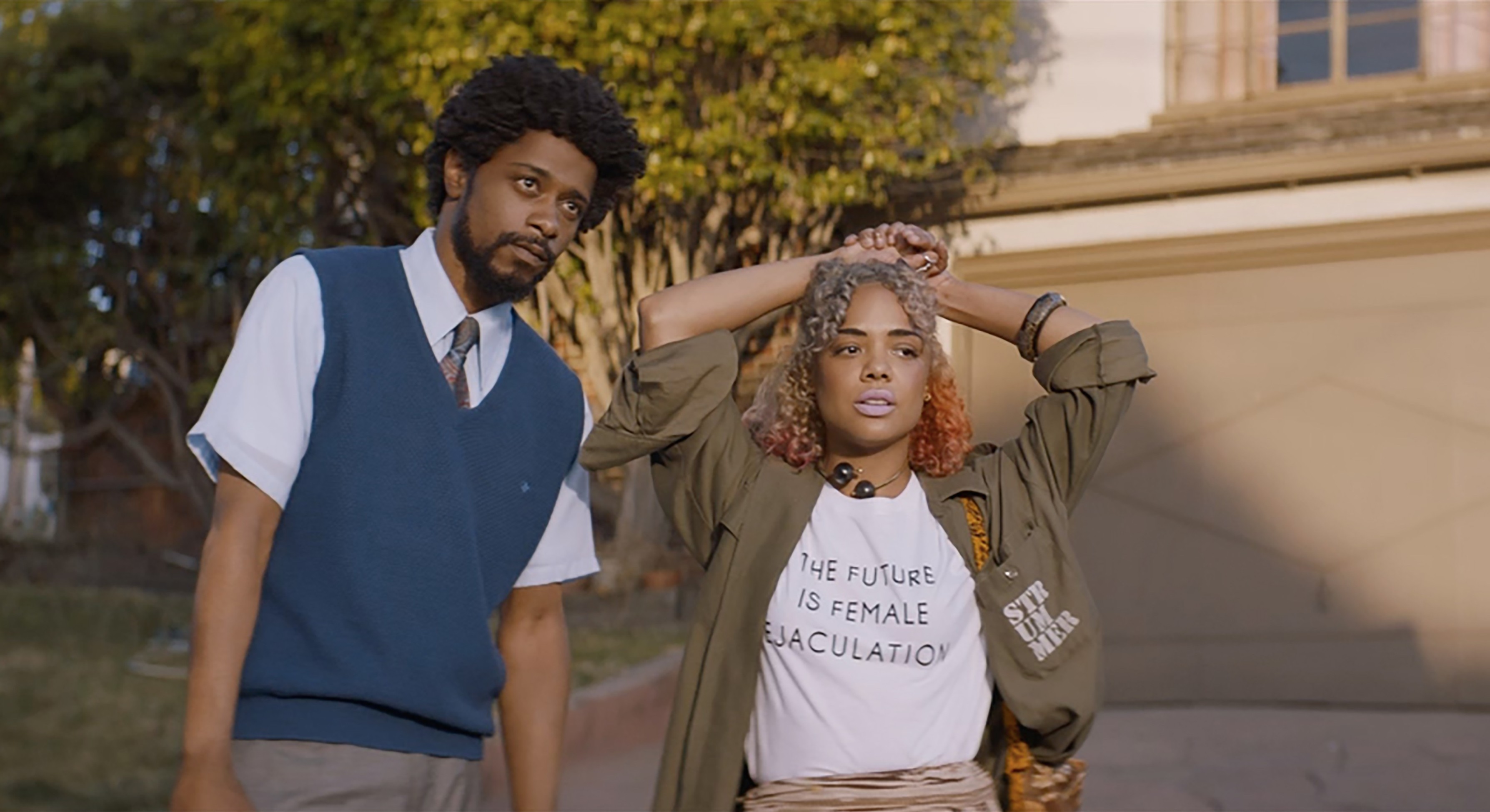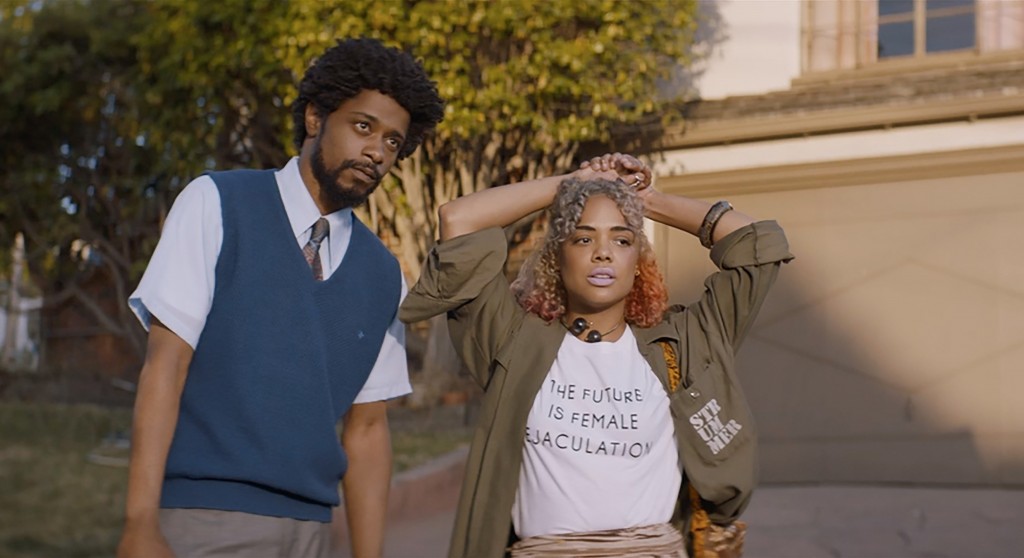Those who know Lakeith Stanfield, the reluctant hero of hip-hop artist Boots Riley’s Sorry To Bother You, probably do so from his scene-stealing turns in Donald Glover’s Atlanta as the bleary-eyed, conspiracy-promoting Darius, who seems to drift in and out of this dimension and the next.
The show, aired on FX, is a rare one clued in to the absurdies and comic challenges of life on the lowest rung, where solid structures can melt away, like a nightclub wall that revolves when your back is turned. Sorry To Bother You, which stars Stanfield as a low-level telemarketer who shoots up the corporate ladder, brings that absurdity in buckets, messing with genre, expectations and form for a strange, unforgettable examination of race, class and power.
Echoing Atlanta’s secret club exit, Sorry To Bother You has its own obsession with secret spaces and hidden compartments. The local dive bar with its own awful VIP room (‘the password is password’); the whiskey behind the bar that opens up to reveal the good stuff, a mini-bottle stacked inside like Russian dolls; the office’s golden elevator that only the “Power Callers”, the upper caste, have access to. In the weirdo capitalism of Sorry To Bother You, there is always some other reality layered behind the immediate one, inaccessible only to those in the know, hidden compartments where horrors lurk.
Riley brings his idiosyncratic creative and political vision to a film that is part South Park, part Idiocracy, part Key & Peele sketch. Initially, it plays out like a critique of code switching conformity. Cassius (Stanfield) is desperate to make commission at his tele gig, save his uncle’s house and impress his performance artist girlfriend Detroit (Tessa Thompson), but none of the cold calls, their pushy intrusiveness expressing in delightful crashing of the frame, translates to sales numbers.
That all changes when he adopts a “white voice” (David Cross literally dubbed over him) and suddenly everyone wants to buy from him. Dazzled by his success, Cassius is fast-tracked up the Regalview corporate ladder and garners the attention of Steve Lift (Armie Hammer), CEO of WorryFree, a workhouse conglomerate whose life-long contracts and unpaid labour sound an awful lot like slavery (or, more accurately, the current system of prison labour).
His rise coincides with his co-workers’ strike (it’s kind of a revelation to see an American film with wide release that takes seriously the idea of unions and class solidarity), inviting questions of identity and fraternity: will Cassius, in his fancy new suit, break the picket line? Will his ‘white’ persona alienate him from his friends and girlfriend?
Sorry To Bother You’s interests are wider and wilder — class, labour conditions, social media, entertainment — and its tone veers drunkenly from earnest to outrageous. Its approach is hardly subtle, but then again neither is reality these days. Cassius, a drifter and a dreamer by nature, cannot find his footing, and spends much of the film in a fug of disbelief, in a narrative that moves with absent-minded unpredictability.
The cartoonish action builds to a third-act switch that is audaciously silly and alienating, its turn towards the body of the worker paralleling Get Out’s finale’s fixation on black physicality and bringing home its charge of capitalism as a force of dehumanisation. A refreshing and bamboozling blow against the aspirational bollocks of our co-working, side-gigging cheerleaders. Conor Smyth
Sorry To Bother You is released on Friday 7th December at QFT, Belfast, the Light House Cinema, Dublin and selected multiplexes.





